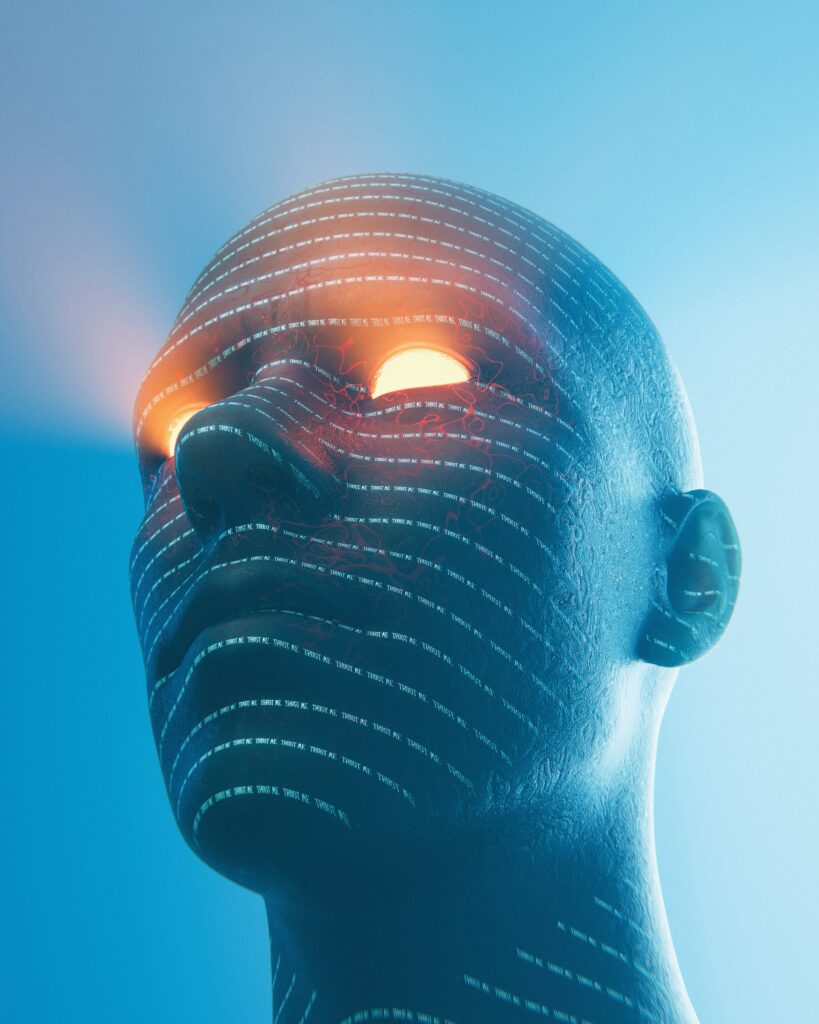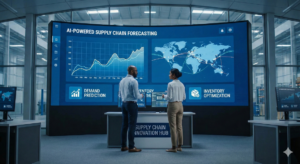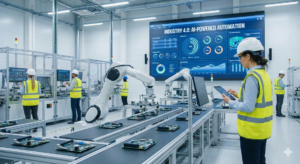In the workplace, the future of human-artificial intelligence collaboration

In the workplace, the future of human-artificial intelligence collaboration
The concept of artificial intelligence has swiftly transitioned from a hypothetical future to a reality that is present in workplaces, factories, and creative studios on a daily basis. AI is progressively defining a paradigm of cooperation in which human intelligence and machine learning operate side by side. This is in contrast to the traditional concept of AI, which aims to completely replace workers. This alliance has the ability to reimagine what it means to be productive, to reconfigure skills, and to build workplaces that are more flexible and inventive. It is beneficial for both businesses and professionals to have an understanding of how this partnership will develop in order to better prepare for the future of work.
1. Moving from Automation to Collaborative Work.
Early on, artificial intelligence was often considered a tool for automating operations that were performed repeatedly. The future rests in teamwork, despite the fact that automation will continue to be vital. Work that is data-intensive and regular may be handled by AI, allowing people to concentrate on making judgments based on their judgment, creativity, and empathy. An example of how artificial intelligence may complement human talents rather than making them obsolete is provided by this division of work.
2. Artificial Intelligence as a Decision-Support System
Artificial intelligence’s capacity to evaluate vast volumes of data and provide ideas that can be put into practice is one of the most promising elements of this technology. Artificial intelligence systems are already influencing decision-making in a variety of industries, including banking, healthcare, and logistics, by anticipating risks, identifying patterns, and recommending solutions. However, people continue to make the ultimate decision, which ensures that ethical concerns and contextual knowledge continue to be of the utmost importance.
3. The Emergence of Creativity Enhanced by Artificial Intelligence
Artificial intelligence (AI) technologies are being utilized to generate new ideas, which is contrary to the worries that robots would remove creativity from the workplace. The usage of AI-generated prototypes allows designers to investigate innovative ideas, authors to develop ideas with the assistance of AI assistants, and musicians to experiment with compositions with the assistance of algorithmic support. The creative process is not being replaced by artificial intelligence; rather, AI is functioning as a catalyst for invention.
4. Altering the Existence of Skill Sets in the Workforce
The abilities that workers need are changing as artificial intelligence becomes more prevalent in the workplace. As digital literacy previously was, technical literacy, which is the knowledge of how artificial intelligence systems function, is becoming just as critical. As a result of the fact that they enable workers to successfully engage with both machines and coworkers, soft skills such as flexibility, critical thinking, and communication are also becoming more important.
5. Human Oversight and the Boundaries of Ethical Conduct
AI has the potential to be strong, yet it is not perfect. Because of the inherent bias in algorithms, the absence of contextual understanding, and the ethical conundrums that arise, human supervision will always be required. It is necessary for the future of cooperation to have governance frameworks that guarantee the responsible use of artificial intelligence, with humans acting as ethical guardians.
6. Personalization of Workflows Through the Use of AI
Increasingly, artificial intelligence is being used in workplace settings to personalize duties. AI will serve as a personal assistant for each employee, doing tasks such as organizing meetings at the most convenient times and proposing learning materials for the purpose of skill development. By doing so, a more supportive atmosphere is created, one in which workers are able to concentrate on work that is meaningful rather than on administrative obligations.
7. A.I. and Emotional Intelligence Number Seven
The capacity for emotional intelligence is one domain in which humans will always have a competitive edge. In domains such as leadership, empathy, and cultural sensitivity, artificial intelligence is unable to simulate. There will most likely be a balance in the workplaces of the future, where artificial intelligence will oversee technical efficiency while humans will nurture relationships, develop trust, and lead teams.
8. Changing the Face of Collaboration in Home-Based Work
Artificial intelligence will also play a significant role in bridging the gaps that exist in digital communication as hybrid and remote work become more prevalent. It will be possible to improve the efficiency of remote teams via the use of intelligent meeting tools, real-time language translation, and AI-driven project tracking. The elimination of physical distance as a barrier to productivity and creativity is realized as a result of this.
9. Potential Obstacles in Partnerships Between Humans and Artificial Intelligence
While there are advantages, there are also difficulties. The fear of job loss may be a barrier to adoption, while an excessive dependence on artificial intelligence may inhibit critical thinking. In order to cultivate confidence in the incorporation of artificial intelligence, businesses need to address these issues by means of open communication, clear rules, and programs to improve employees’ skills.
10. Making Change-Ready Organizations More Effective
The future of artificial intelligence cooperation for enterprises is not about embracing technology for the purpose of taking advantage of it; rather, it is about aligning it with strategy. It is imperative that leaders make investments in training, rethink procedures, and establish interdisciplinary teams in which humans and artificial intelligence collaborate closely.
The future of human-made artificial intelligence cooperation is not about computers taking over occupations; rather, it is about developing workplaces that are smarter and more adaptable. Humans are able to devote more of their attention to creative endeavors, problem-solving, and leadership when AI takes care of regular jobs. Humans, on the other hand, are the ones who supply the ethical framework, and artificial intelligence cannot imitate emotional intelligence. All things considered, this relationship has the potential of a future in which work will not only be more productive but also more significant.




